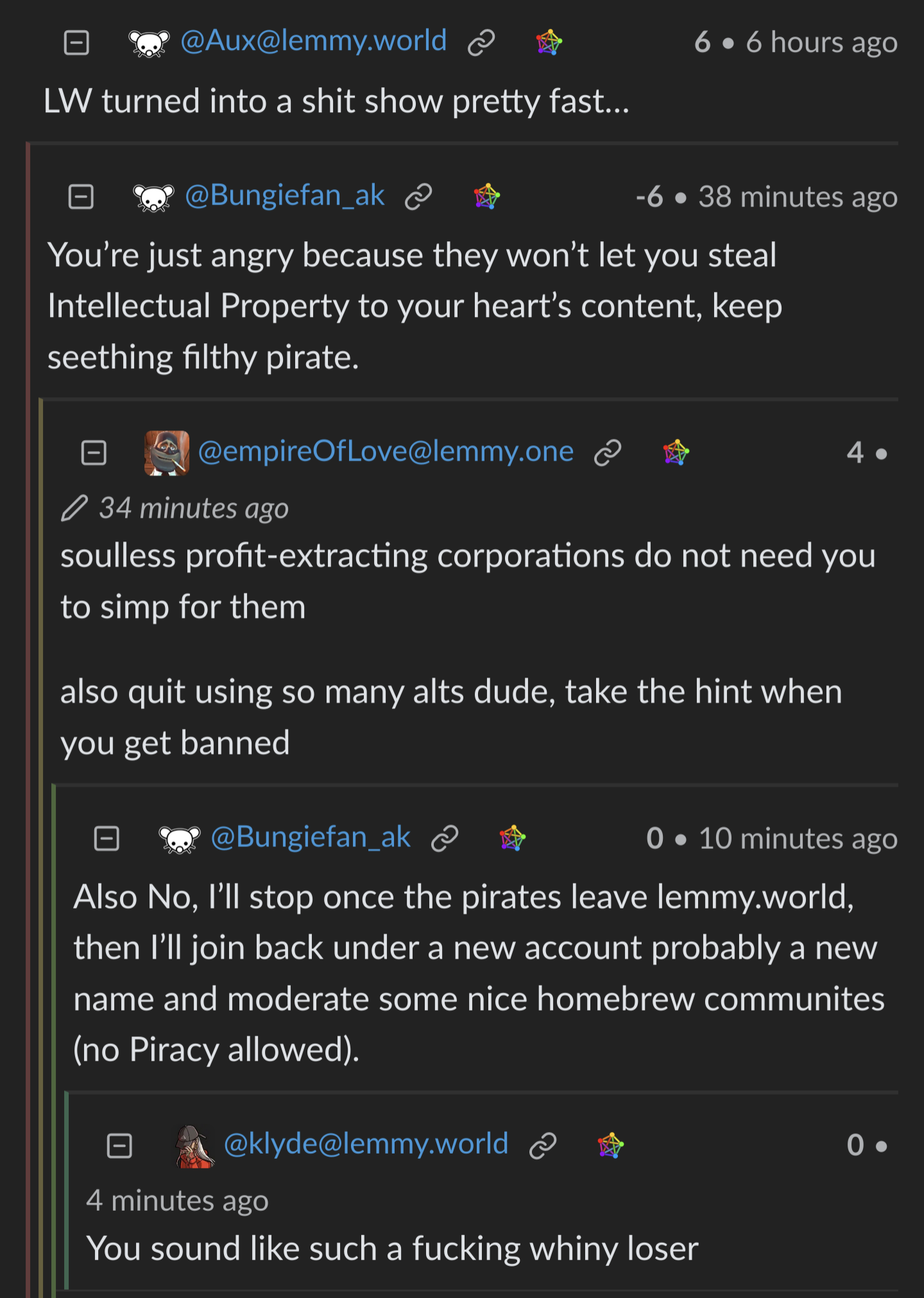this post was submitted on 15 Aug 2023
921 points (94.2% liked)
Piracy: ꜱᴀɪʟ ᴛʜᴇ ʜɪɢʜ ꜱᴇᴀꜱ
54716 readers
706 users here now
⚓ Dedicated to the discussion of digital piracy, including ethical problems and legal advancements.
Rules • Full Version
1. Posts must be related to the discussion of digital piracy
2. Don't request invites, trade, sell, or self-promote
3. Don't request or link to specific pirated titles, including DMs
4. Don't submit low-quality posts, be entitled, or harass others
Loot, Pillage, & Plunder
📜 c/Piracy Wiki (Community Edition):
💰 Please help cover server costs.
 |
 |
|---|---|
| Ko-fi | Liberapay |
founded 1 year ago
MODERATORS
you are viewing a single comment's thread
view the rest of the comments
view the rest of the comments


Unfortunately, I'm pretty sure that's not the case. If you "federate" a server with CP for example, you are hosting CP. If it's not brought to your attention, maybe you have a safe harbor exception (and maybe not), but if it IS brought to your attention, you are required to act on it to not be liable. And I airquote "federate" because as I learned Lemmy's architecture, I'm not sure "federated" is the best word to describe it. When I think of federated, I think of something like an orchistrator. A tool where you are directed to the authoritative cluster for content, but not required to join in on it. In such a world, there would be three states - (1) I have a copy of this data, (2) I don't have a copy of this data but link/index it, (3) I refuse to index this data
Lacking #2, I believe, really creates a lot of liability.